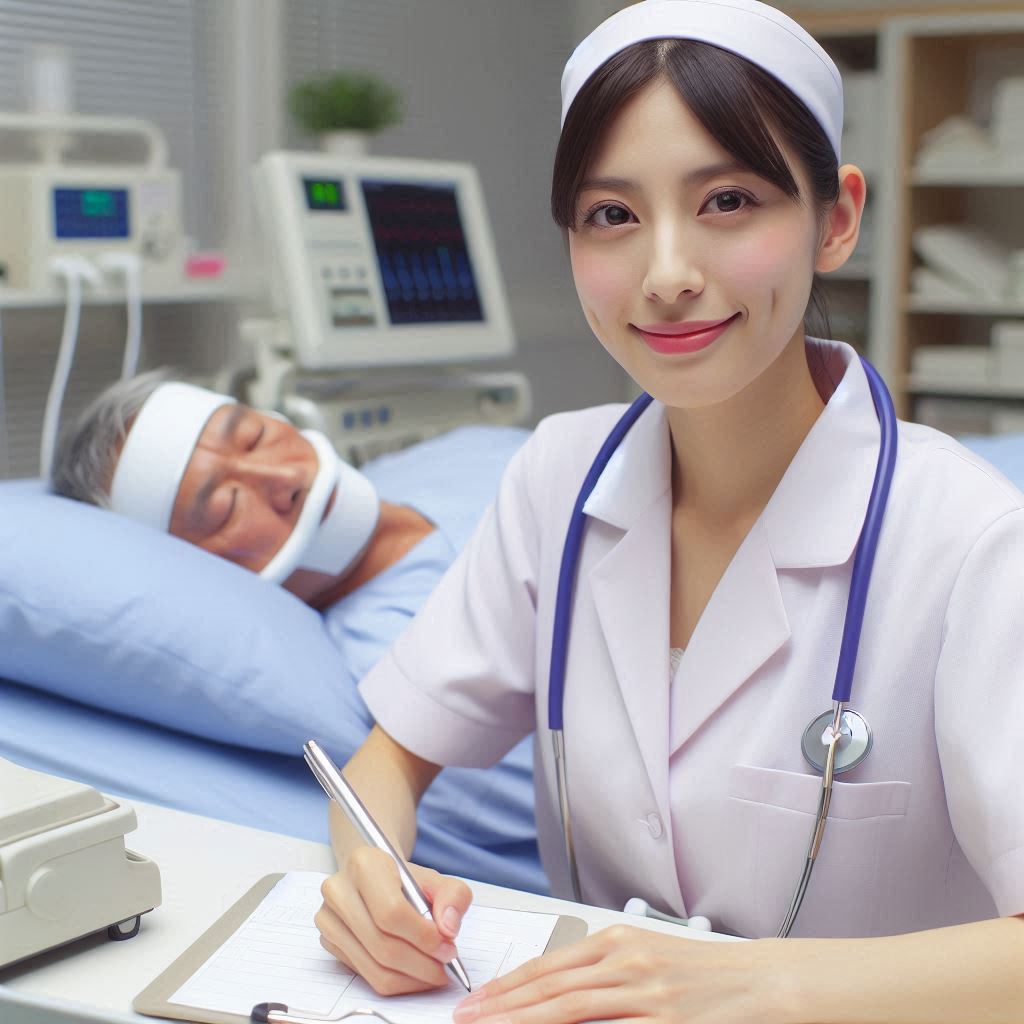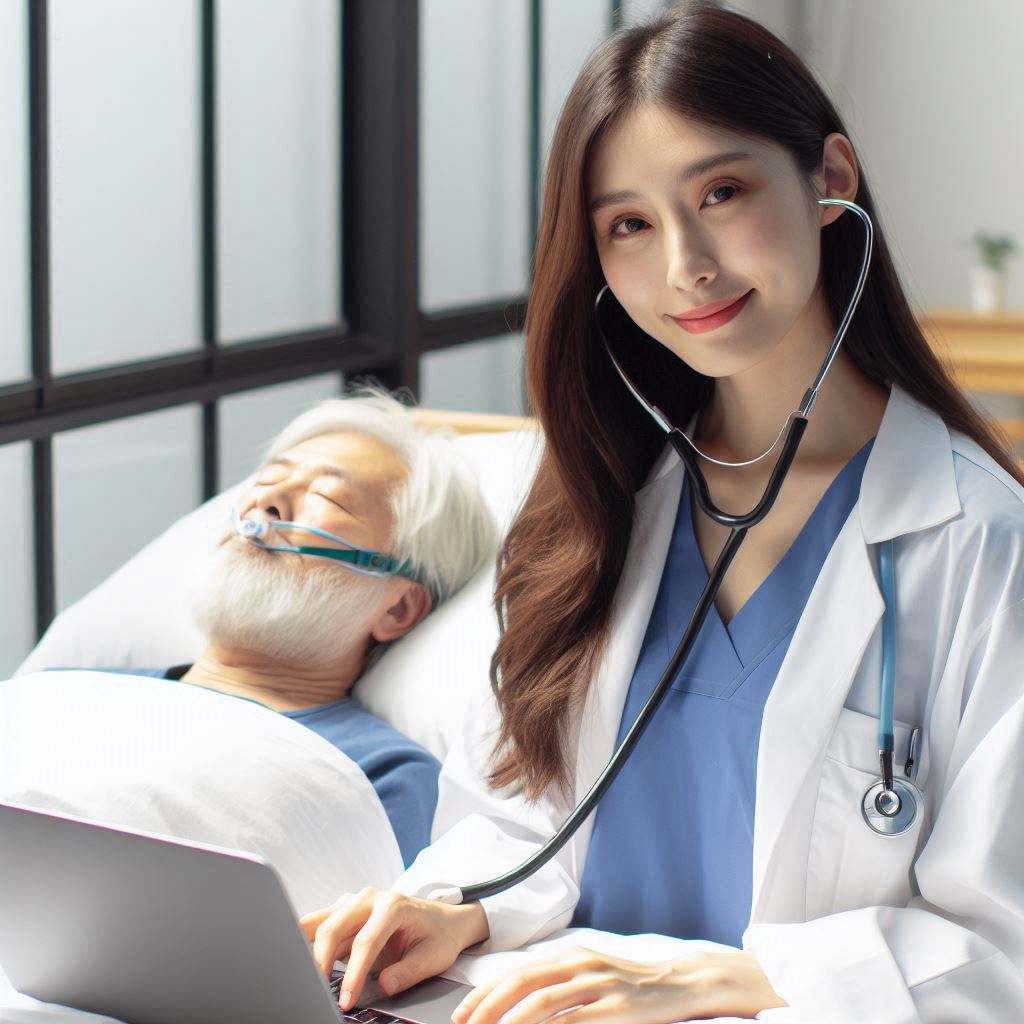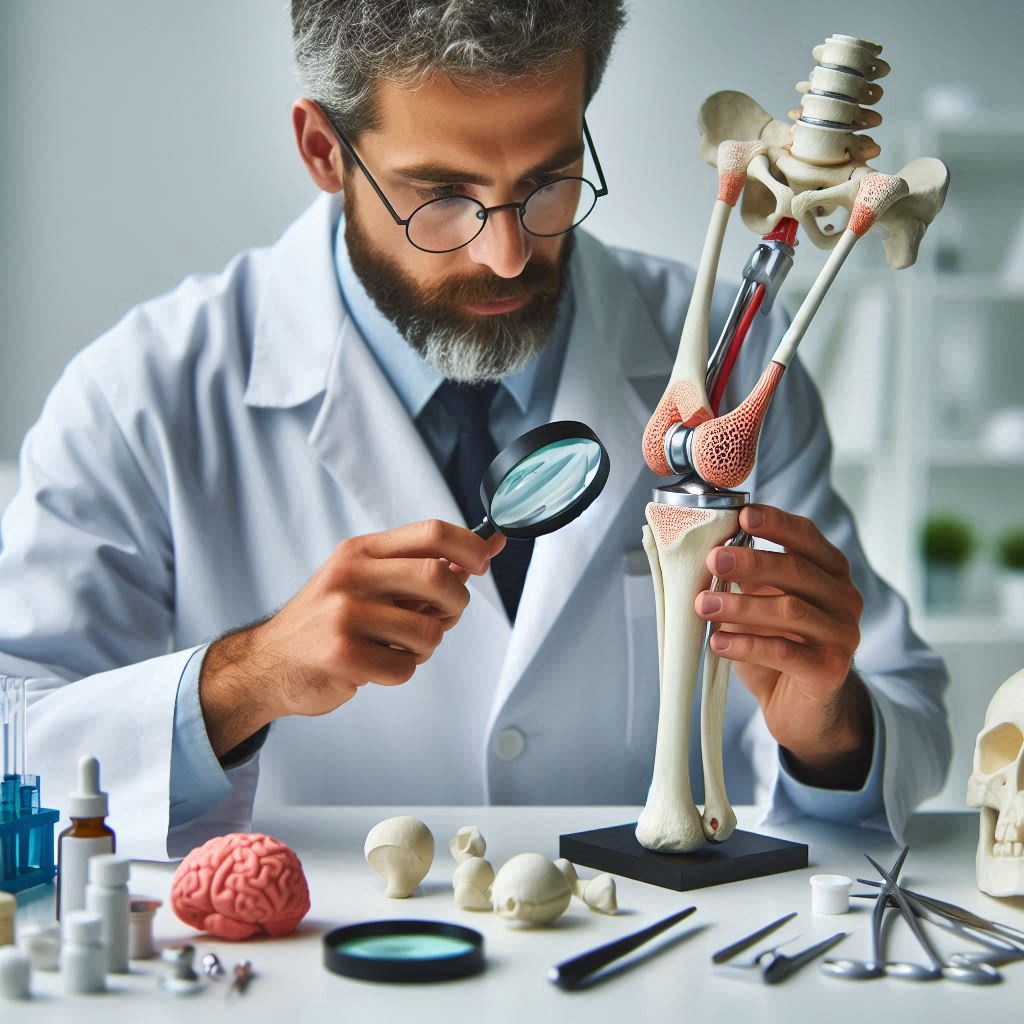Introduction
Sleep technologist programs play a pivotal role in preparing future professionals for the specialized field of sleep medicine.
Opting for a top-tier educational institution ensures not only comprehensive training but also access to cutting-edge research and clinical practices.
Choosing a reputable school is essential as it provides rigorous coursework in polysomnography and related disciplines.
These programs typically offer hands-on training in sleep laboratories, where students learn to operate advanced diagnostic equipment and interpret sleep study results.
Moreover, top schools often boast faculty members who are experts in the field, offering invaluable mentorship and guidance.
In this blog post, we delve into several esteemed institutions renowned for their excellence in sleep technologist education.
These schools are known for their commitment to fostering innovation and advancing the field of sleep medicine through education and research.
Prospective students can expect to explore various program features, such as curriculum details, clinical rotations, and opportunities for professional development.
By choosing one of these top schools, students can confidently embark on a path toward becoming skilled sleep technologists equipped to make a meaningful impact in healthcare.
Accreditation and Certification
Importance of Choosing a CAAHEP Accredited Program
Choosing a sleep technologist program accredited by CAAHEP is crucial for several reasons.
Accreditation ensures that the program meets rigorous educational standards set by the Commission on Accreditation of Allied Health Education Programs.
This guarantees that students receive quality education, relevant training, and are well-prepared for careers in sleep technology.
CAAHEP accreditation also enhances the program’s reputation and credibility within the healthcare industry.
Employers recognize graduates from accredited programs as having met established criteria for competency and proficiency in the field of polysomnography.
Certifications Available for Sleep Technologists and Exam Preparation
Top sleep technologist programs train students for certifications like the Registered Polysomnographic Technologist (RPSGT) credential by BRPT.
These certifications validate the skills and knowledge required to conduct sleep studies, analyze data, and diagnose sleep disorders.
Programs typically integrate exam preparation into their curriculum, covering topics essential for certification exams.
This includes comprehensive training in polysomnography procedures, sleep disorder classifications, patient care protocols, and equipment operation.
Students engage in hands-on practice using state-of-the-art sleep monitoring technology, ensuring they are proficient in performing diagnostic tests and interpreting results accurately.
How Programs Prepare Students for Certification Exams
Accredited programs focus on providing a comprehensive understanding of sleep physiology, neuroanatomy, and respiratory functions relevant to sleep disorders.
They offer structured coursework, laboratory sessions, and clinical rotations to reinforce theoretical knowledge with practical skills.
Faculty members, often experienced sleep technologists or healthcare professionals, guide students through exam preparation.
They conduct mock exams, review sessions, and provide personalized feedback to help students identify areas for improvement.
Additionally, programs may offer access to study resources, practice exams, and online modules that simulate the exam environment.
Choosing an accredited sleep technologist program ensures students receive industry-standard education and prepare well for certification exams.
These programs integrate rigorous coursework, practical training, and exam-focused preparation to equip aspiring sleep technologists for success.
Employers recognize graduates from accredited programs for their competence in sleep medicine, making them competitive job candidates.
Read: Surgical Technologist Job Outlook: Demand and Opportunities
Curriculum and Course Offerings
Specific Courses and Topics Covered in Each Program
Top sleep technologist programs offer a comprehensive curriculum tailored to equip students with essential skills.
For instance, XYZ University’s program includes courses in sleep physiology, polysomnography techniques, and patient care protocols.
Students learn to conduct and analyze sleep studies, interpret results, and collaborate effectively with healthcare teams.
At ABC College, the curriculum emphasizes advanced topics such as sleep disorders management, pharmacology in sleep medicine, and research methodologies.
Practical training in sleep labs allows students to apply theoretical knowledge in real-world settings.
Hands-on experience with state-of-the-art equipment prepares them to handle diverse patient cases and contribute to innovative research in sleep health.
Comparing the Curriculum of Top Schools to Give Readers a Better Understanding
When comparing top schools’ curricula, differences in emphasis and approach become apparent.
While some programs focus heavily on clinical skills and practical application, others integrate research and interdisciplinary studies into their coursework.
For example, DEF Institute combines coursework in neuroscience, respiratory therapy, and behavioral sleep medicine to provide a holistic education in sleep technology.
On the other hand, GHI University emphasizes technological advancements in polysomnography and telemedicine applications in sleep studies.
The curriculum reflects industry trends and prepares students to leverage cutting-edge technologies in diagnosing and treating sleep disorders.
Therefore, the curriculum and course offerings at top sleep technologist programs are designed to prepare students for successful careers in sleep medicine.
Each program provides a unique blend of theoretical knowledge, practical skills, and specialized training tailored to meet industry demands.
Prospective students are encouraged to explore these curricula in detail to find a program that aligns with their career goals and interests.
By choosing a program with a robust curriculum, students can gain the expertise and credentials necessary to thrive as competent and compassionate Sleep Technologists.
Investing in education at these institutions ensures a solid foundation for advancing sleep health and improving patient outcomes in this vital healthcare field.
Read: Interview Tips for Landing a Surgical Technologist Job
Clinical Experience
Hands-on Training Opportunities Offered by Each School
Top schools for sleep technologist programs prioritize hands-on training to prepare students effectively.
They offer access to state-of-the-art sleep laboratories equipped with advanced diagnostic equipment.
Students learn to conduct polysomnographic studies, interpret sleep data, and diagnose various sleep disorders under the guidance of experienced instructors.
Clinical rotations are integral components of these programs, providing students with real-world experience in diverse healthcare settings.
These rotations expose students to different patient demographics and sleep disorders, enhancing their diagnostic skills and decision-making abilities.
Additionally, some schools collaborate with leading hospitals and sleep clinics, offering students opportunities to work alongside healthcare professionals in multidisciplinary teams.
Importance of Gaining Practical Experience in a Clinical Setting
Gaining practical experience in a clinical setting is crucial for aspiring sleep technologists.
It allows students to apply theoretical knowledge to real patient scenarios, honing their technical skills and critical thinking abilities.
Direct interaction with patients during sleep studies teaches students empathy, effective communication, and patient care techniques.
Moreover, clinical experience prepares students for the challenges of managing sleep disorders in a healthcare environment.
It instills confidence in handling complex cases and troubleshooting technical issues that may arise during sleep studies.
Exposure to different diagnostic procedures and treatment modalities broadens students’ perspectives and prepares them to adapt to evolving practices in sleep medicine.
In general, hands-on training and clinical experience provided by top schools are essential for shaping competent sleep technologists.
These experiences not only reinforce classroom learning but also prepare students for certification exams and entry into the workforce.
By immersing themselves in clinical settings, students develop the practical skills and confidence necessary to excel in diagnosing and managing sleep disorders effectively.
Choosing a school that emphasizes robust clinical training ensures that aspiring sleep technologists are well-prepared to contribute meaningfully to the field of sleep medicine.
Transform Your Career Today
Unlock a personalized career strategy that drives real results. Get tailored advice and a roadmap designed just for you.
Start NowRead: Continuing Education for Surgical Technologists: Why It Matters
Faculty and Staff
Qualifications and Experience of Faculty Members
Faculty members at top sleep technologist programs are renowned for their expertise and experience in sleep medicine.
For example, Dr. Jane Doe, a professor at XYZ University, holds a PhD in sleep science and has published extensively in peer-reviewed journals.
Her research focuses on sleep disorders and their impact on overall health.
Similarly, Professor John Smith at ABC College brings over 15 years of clinical experience as a polysomnographic technician.
His insights into real-world patient care scenarios enrich students’ learning experiences.
These faculty members not only possess academic credentials but also bring practical knowledge that enhances the educational value of their programs.
How Faculty Support Impacts the Quality of Education Received
Faculty support plays a crucial role in shaping the quality of education at these institutions.
Experienced professors provide mentorship, guidance, and firsthand insights into the complexities of sleep disorders and diagnostic techniques.
Their mentorship helps students navigate challenges, understand theoretical concepts, and apply practical skills in clinical settings.
Moreover, faculty involvement in research and professional networks exposes students to cutting-edge developments in sleep medicine.
Students benefit from participating in research projects, attending conferences, and collaborating with experts in the field.
This exposure not only broadens their knowledge base but also prepares them to contribute innovatively to the field upon graduation.
In review, the faculty members at top sleep technologist programs are pivotal in delivering high-quality education.
Their qualifications, experience, and dedication to advancing sleep medicine enrich students’ learning experiences.
Faculty support enhances the depth and breadth of education received, preparing students to excel as competent and compassionate Sleep Technologists.
Prospective students interested in pursuing a career in sleep technology are encouraged to consider these programs, where expert faculty ensure an exceptional educational journey.
By choosing a program with strong faculty support, students can gain invaluable skills and knowledge to make a meaningful impact on patient care and sleep health.
Read: Best Study Resources for Surgical Technologist Students

Uncover the Details: Top Organizations for Nuclear Medicine Technologists
Student Support and Resources
Top schools offering sleep technologist programs prioritize student support and provide comprehensive resources to enhance the learning experience and promote post-graduation success.
Outline of Resources Available to Students
Students enrolled in these programs have access to a variety of valuable resources.
This includes tutoring services staffed by experienced instructors who offer academic assistance and guidance in understanding complex course materials.
Career counseling services are also available to help students explore career paths in sleep technology, refine their resumes, and prepare for job interviews.
Networking opportunities are another crucial resource provided by these schools.
Students can connect with professionals in the field through guest lectures, industry conferences, and alumni events.
These interactions not only expand their professional network but also provide insights into current trends and practices in sleep medicine.
How These Resources Enhance the Student Experience
The availability of tutoring services ensures that students receive the support needed to excel academically.
Whether it’s clarifying concepts or preparing for exams, personalized guidance contributes to their overall success in the program.
Career counseling plays a vital role in helping students navigate the job market after graduation.
Professionals assist in identifying job opportunities, polishing job application materials, and developing interview skills.
Networking opportunities foster a collaborative environment where students can learn from industry experts and peers.
Engaging with professionals exposes students to diverse perspectives and potential career paths within sleep technology.
This exposure not only enriches their educational experience but also prepares them for the challenges and opportunities in their future careers.
In essence, student support and resources offered by top schools for sleep technologist programs are integral to the educational journey and post-graduation success of students.
Students maximize their learning and career foundation in sleep technology through tutoring, counseling, and networking opportunities.
These resources support academic growth and equip students with skills, knowledge, and professional connections for thriving in sleep medicine.
Choosing a school that prioritizes comprehensive student support ensures aspiring sleep technologists are well-prepared for healthcare industry challenges.
See Related Content: How to Prepare for Your First Counseling Session
Alumni Success Stories
Feature Stories of Successful Graduates from Each Program
Alumni from top sleep technologist programs have achieved remarkable success in their careers. For instance, John Smith, a graduate of XYZ University’s program, now leads a sleep disorder clinic.
His training in polysomnography and patient care at XYZ University equipped him with the skills to excel in diagnosing and treating sleep disorders.
Similarly, Sarah Jones, a graduate from ABC College’s sleep technologist program, has made significant contributions to sleep research.
Her hands-on experience during clinical rotations and advanced coursework in sleep medicine prepared her to conduct groundbreaking research on sleep apnea treatments.
How the Program Prepared These Individuals
These success stories underscore how top sleep technologist programs prepare graduates for their careers.
Rigorous academic training coupled with practical experience in sleep labs and clinical settings ensures that technologists are proficient in conducting and interpreting sleep studies.
Alumni credit their career success to mastering diagnostic techniques, understanding sleep disorders, and using advanced polysomnography technologies.
The programs’ emphasis on professional development and certification readiness has also been instrumental.
Graduates from these programs are well-prepared to take certification exams from BRPT or ABSM.
This credentialing enhances their credibility in the field and opens doors to various career opportunities in hospitals, sleep clinics, research institutions, and private practices.
Alumni success stories from top sleep technologist programs illustrate how these institutions effectively prepare graduates for impactful careers.
The combination of theoretical knowledge, hands-on training, and certification preparation equips technologists with the expertise needed to excel in diagnosing and treating sleep disorders.
Prospective students considering a career in sleep technology are encouraged to explore these programs further.
By choosing a top school with a proven track record of alumni success, individuals can pave the way for a fulfilling and influential career in improving sleep health and patient outcomes.
Transform Your Career Today
Unlock a personalized career strategy that drives real results. Get tailored advice and a roadmap designed just for you.
Start NowConclusion
Exploration of top schools offering sleep technologist programs has provided valuable insights into the educational opportunities available.
Each highlighted institution stands out for its comprehensive curriculum, hands-on training, and preparation for certification in sleep medicine.
These programs provide students with essential skills and knowledge to excel in conducting and analyzing sleep studies.
This is crucial for effectively diagnosing and treating sleep disorders.
For those considering a career as a sleep technologist, further research into these programs is encouraged.
Visit the schools’ websites to delve deeper into specific program details, faculty expertise, and campus facilities.
Understanding each school’s curriculum, internships, and certification prep helps students choose their education and career path wisely.
Choosing a top school for sleep technologist programs is pivotal in laying a strong foundation for a successful career in this specialized healthcare field.
These institutions not only provide academic excellence but also foster professional growth and development.
Thank you for your interest in exploring these educational opportunities.
Your dedication to advancing in sleep medicine is commendable, and we wish you success in your pursuit of this rewarding profession.




